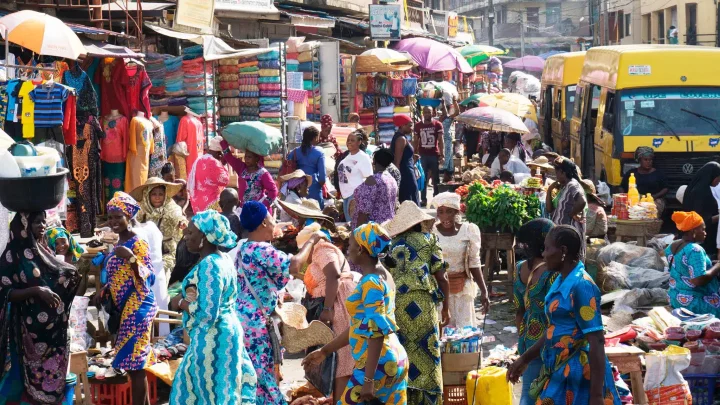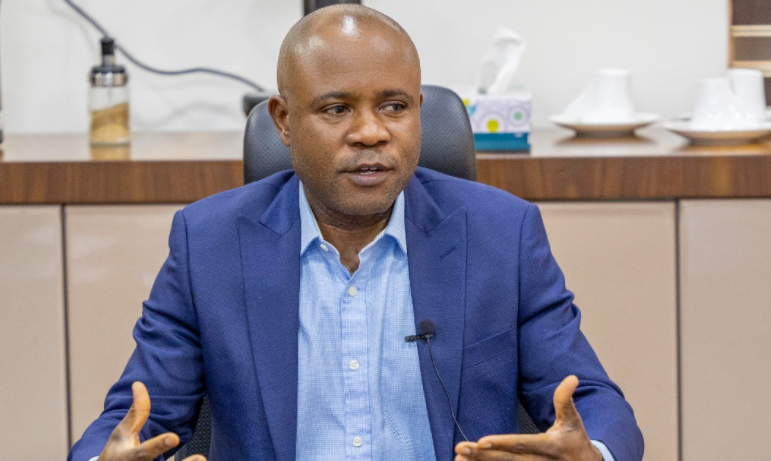On Monday, the Ondo State Security Network Agency, otherwise known as Amotekun, paraded 28 people alleged to have committed an assortment of crimes against the state. Amongst them were two teenage sisters, both junior secondary school pupils. The sisters, 15 and 13, allegedly faked their kidnapping and asked their mother for a ransom of N100,000. That broke my heart!
It is one thing for children to contemplate or even embark on criminal missions; it is entirely another thing to make your parents targets of such endeavours.
First, kidnapping any human being’s two children already throws that person into emotional turmoil; to compound that by placing monetary demands on the same parent is, in my opinion, the height of cold-heartedness. It is worse when there is only one parent in the equation, and even more unsettling when the only available parent is the mother.
Now, we don’t know anything about the circumstances of these children or their mother, but the narrative suggests that the mother is the breadwinner, if not the only parent in this family.
Advertisement
Given the prevailing economic situation in the country, you would expect children to empathise with their parents and avoid putting unnecessary burdens on them. That did not happen in the situation under question. The older sister talked her sibling into tormenting their mother.
But they didn’t stop at that! The report indicated that pretending to be kidnappers, they threatened to kill their “victims” if the ransom wasn’t paid within 24 hours while speaking with the monarch of their native Oka-Akoko, Akoko South-West Local Government Area of the state. These young souls must sound like some dreadful, tough criminals at that point. Reports gave no impression that they had accomplices.
The second problematic thing about these girls’ actions is their desperation for money. Should money and the desperate acquisition of it be the priorities of children of that age? Why have money, and success by all means suddenly become the priorities of children in Nigeria? Just three weeks ago, we were talking about another person who falsified her matriculation examination result, so why?
Advertisement
The question got more expedient when I came across another thought-provoking report shortly after reading about the Ondo State incident.
The second report came with a YouTube video titled “Meeting of the Masters.” The first episode of the short series has legendary Swiss Tennis player, Roger Federer facing 12-year-old Tanitoluwa Adewunmi in a chess match at Columbus Park, New York.
Tanitoluwa is the child whose Nigerian parents left Abuja to seek religious asylum in the United States to escape of violent threats from Boko Haram terrorists, in 2017.
Tani, as he is known, was seven at this time! For their first year, the family lived in a refugee shelter. It was during this period that the young man joined the chess club at his elementary school. To the surprise of everyone around him, he learnt very fast.
Advertisement
According to chess.com, the chess prodigy has now “earned his second “IM norm” of the three required to earn the coveted international masters title, at the NY Summer Invitational IM C closed round-robin tournament… He won the tournament in clear first with 7/9 points, the only undefeated player in the field, and ahead of three international masters.”
In his conversation with Federer, who confessed that he was nervous about facing Tani, the young player said he was determined to become a chess grandmaster before he hit the age of 14. He ended his statement by affirming: “I think I can get there.”
Tani asked his opponent how many grand slams he had won. When Federer said twenty and went ahead to list the tournaments where he achieved the feats, the young lad nodded contemplatively. His confidence and understanding of the importance of hard work as a building block for attainment struck me. I could not resist juxtaposing his situation with the self-kidnap story I just read. I found it sad.
Yet, every Nigerian child can attain the feat Tanitoluwa and many other children achieve worldwide. The only difference is the training and opportunities the country offers for its children.
Advertisement
For instance, Tani’s potential grew within his first year in the United States. At eight years old one year on, he won the 2019 K-3 New York State chess championship. Before the end of that year, he accumulated seven trophies! The difference: the opportunity to join a club in his school, demonstrate his skill without inhibition, and secure the support of his coaches! He had the opportunity to aspire and the platform to attain his aspiration. He made the best of it!
Of course, there are many high-achieving children in Nigeria. Now and then, the country throws up global champions in science, technology, engineering, and mathematics (STEM) subjects. At some other time, pupils excel and make the country proud in sports.
Advertisement
However, these are mostly children of the elite who have extra attention in expensive private institutions littering the country. There are just a few instances of children in public institutions, where the bulk of the children are, thriving. This is where Nigeria’s problems stand.
Many would suggest that the main problem is with the number of out-of-school children, currently put at about 20 million by the United Nations Educational, Scientific, and Cultural Organisation (UNESCO), but this is just a tokenistic view of Nigeria’s challenge.
Advertisement
The reality is that many of those in schools are not learning! Last year, Communication Specialist for the United Nations Children’s Fund (UNICEF), Geoffrey Njoku, hinted that 70 per cent of children in Nigerian schools are not learning. Newspaper reports quoted him as saying, “… it is high time we focused on learning by revamping the education system through teacher training, changing the curriculum, and changing the narrative through quality education.”
This call is one that no country should take lightly. But it is more so for Nigeria, where children and young people constitute a considerable population. UNICEF’s 2022 Situation Analysis of Children in Nigeria indicates that data gathered in 2020 suggest that 52% of Nigeria’s population are children between 0 and 17. The global agency also projects that by 2050, one of every 13 children will be Nigerian. These numbers show that the fate of Nigeria’s children will affect global development in years to come. More importantly, it draws attention to the dangers the country faces without a plan to engage this demographic gainfully.
Advertisement
The educational sector is in shambles, from the elementary to the tertiary level. Informal and vocational education is virtually non-existent, while the quality of teaching has continued to sag. The country is also not making any serious attempt to direct the interest of its youth towards science, technical, mathematical, and engineering subjects, all of which are critical.
So, as the Tinubu administration struggles to put the country’s economy in shape, it must take urgent steps to tackle the country’s child development crisis.
President Bola Tinubu must be willing to galvanise national action in this direction. Whether through the governors’ forum, the national economic council, or any other platform he deems fit, Nigeria must move together on this vital mission of compulsory formal basic education (up to secondary level) for all children. This initiative must also overhaul teacher training, recruitment, and welfare.
After this compulsory formal education, the country must make alternative forms of education available to children who do not have the capacity or flair for advanced formal education. Nigeria needs more personnel in the vocations, and it can engage millions of its youths in these areas with proper education.
Beyond education, the country should move for the nationwide adoption and implementation of The Child Rights Act (2003). We must address all impediments and threats to the existence and well-being of children, and adequately empower them to be tomorrow’s leaders.
Society, including the family, plays a vital role in determining whether the individual tends towards law and order or the base instinct of decadence, savagery, and violence when this constant internal battle ensues. When you deny children proper education that addresses their soul and intellect, society throws its future to the dogs. That is when they resort to crimes, success, and survival, which make the country hell for everyone. Unless we act, those children Nigeria will not train today will be the albatross of those sent to first-grade schools by their rich parents tomorrow.
Adedokun can be reached on Twitter @niranadedokun
Views expressed by contributors are strictly personal and not of TheCable.
Add a comment







